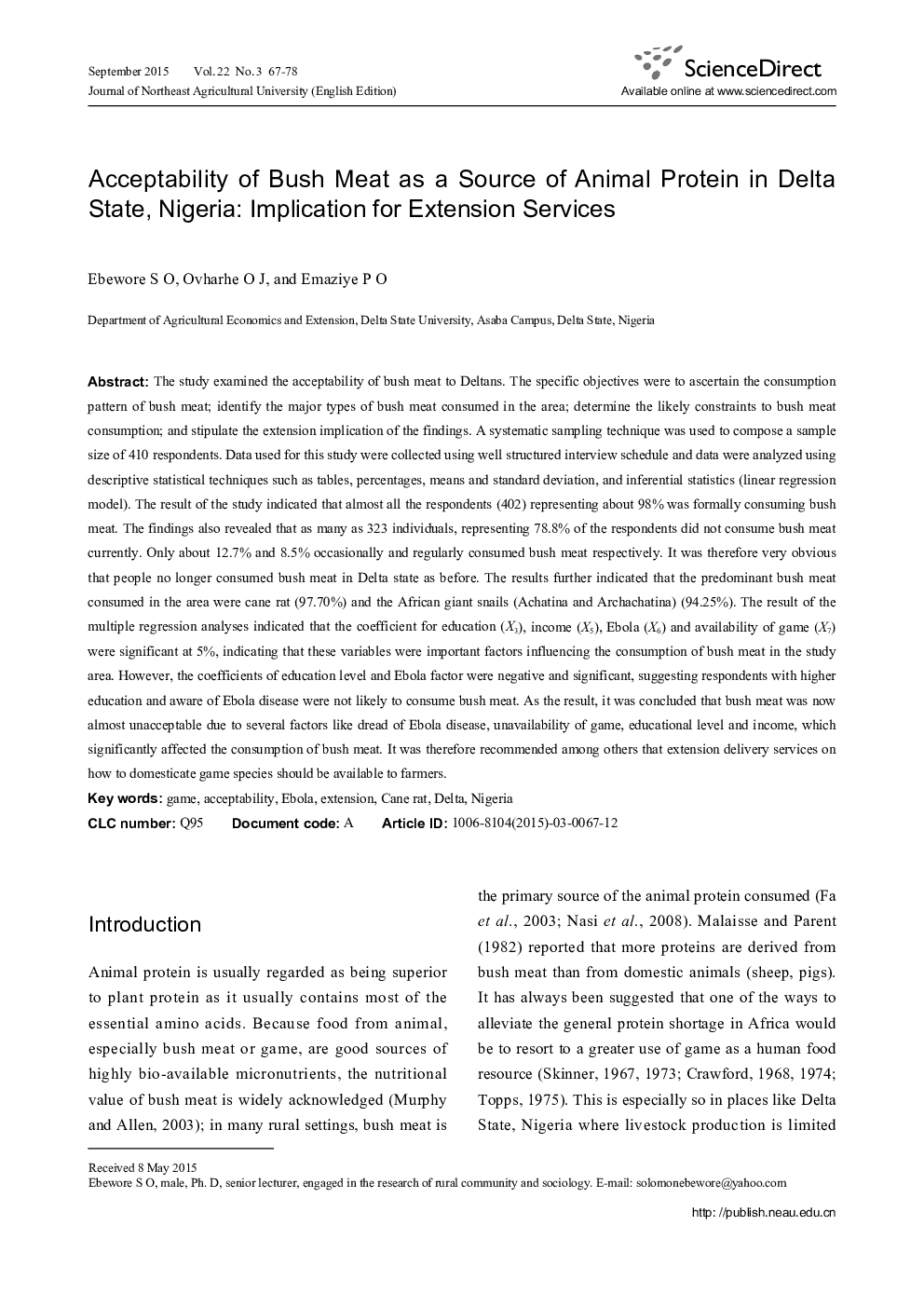| کد مقاله | کد نشریه | سال انتشار | مقاله انگلیسی | نسخه تمام متن |
|---|---|---|---|---|
| 4495312 | 1318752 | 2015 | 12 صفحه PDF | دانلود رایگان |
The study examined the acceptability of bush meat to Deltans. The specific objectives were to ascertain the consumption pattern of bush meat; identify the major types of bush meat consumed in the area; determine the likely constraints to bush meat consumption; and stipulate the extension implication of the findings. A systematic sampling technique was used to compose a sample size of 410 respondents. Data used for this study were collected using well structured interview schedule and data were analyzed using descriptive statistical techniques such as tables, percentages, means and standard deviation, and inferential statistics (linear regression model). The result of the study indicated that almost all the respondents (402) representing about 98% was formally consuming bush meat. The findings also revealed that as many as 323 individuals, representing 78.8% of the respondents did not consume bush meat currently. Only about 12.7% and 8.5% occasionally and regularly consumed bush meat respectively. It was therefore very obvious that people no longer consumed bush meat in Delta state as before. The results further indicated that the predominant bush meat consumed in the area were cane rat (97.70%) and the African giant snails (Achatina and Archachatina) (94.25%). The result of the multiple regression analyses indicated that the coefficient for education (X3), income (X5), Ebola (X6) and availability of game (X7) were significant at 5%, indicating that these variables were important factors influencing the consumption of bush meat in the study area. However, the coefficients of education level and Ebola factor were negative and significant, suggesting respondents with higher education and aware of Ebola disease were not likely to consume bush meat. As the result, it was concluded that bush meat was now almost unacceptable due to several factors like dread of Ebola disease, unavailability of game, educational level and income, which significantly affected the consumption of bush meat. It was therefore recommended among others that extension delivery services on how to domesticate game species should be available to farmers.
Journal: Journal of Northeast Agricultural University (English Edition) - Volume 22, Issue 3, September 2015, Pages 67-78
